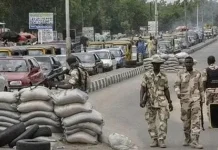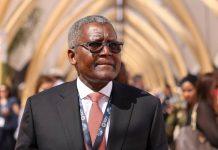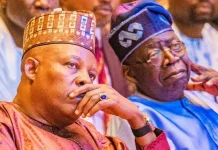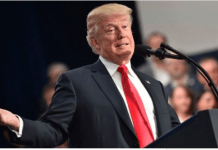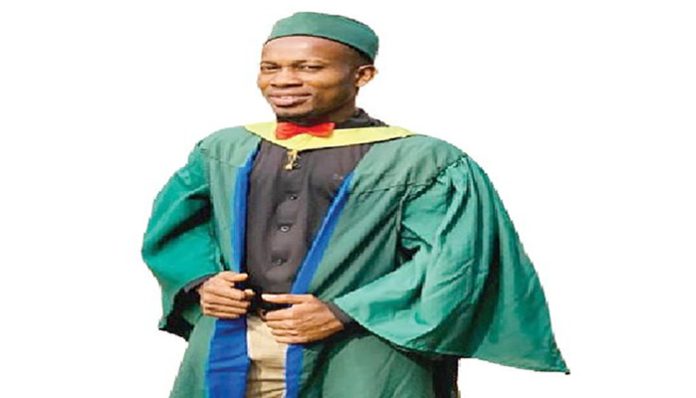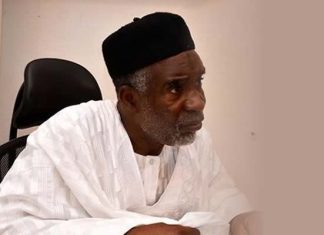

Ogun State varsity graduate, Abiola Oluga, 28, tells ABDULLATEEF FOWEWE how policemen arrested him and accused him of recording their activities, and later declared him a cultist while having a phone conversation with his friend
Can you provide some information about what led to your detention?
I’m Abiola Oluga; I’m 28 years old. I was born in Abeokuta, Ogun State. I recently graduated from the Department of Mathematics of the Federal University of Agriculture, Abeokuta, and I work as a full-stack web developer. However, the detention occurred just eight days after my graduation, as I returned home to assist my father, who is a widower and retired civil servant. On Sunday, February 4, 2024, while chatting with a friend on WhatsApp outside my father’s house after returning from church, I was unexpectedly arrested and physically assaulted by some policemen, who falsely claimed that I was recording them on video. My father attempted to speak with the Divisional Police Officer of the Ibara Police Division, Lateef Balogun, and his team to seek clarification, but they were extremely rude and unhelpful.
The police officer didn’t show any respect to the elders of the community and even threatened my father with a gun. I was deeply saddened by the disrespect shown in public, not only to me but also to my father. Other innocent individuals who were arrested were taken to the Lafenwa Police Station and detained for three hours before being paraded throughout Abeokuta by the anti-cultism unit. This exposed us to public humiliation before reaching the Ibara Police Station, the nearest one to our area; their vehicle returned at exactly 5.30 pm, accompanied by the Area Commander of Zone 2, Abeokuta.
Despite our efforts, my family was unable to bail me out on Sunday and had hoped to do so on Monday. However, the DPO did not grant me bail; it was claimed that only three persons would be granted bail and that only the state commissioner of police had the authority to grant me bail despite not having committed any offence. The DPO informed my brother that he heard that I was a graduate of Mathematics and that I was intelligent, but not brilliant, and promised to use me as an example. One of the officers involved in my case informed my brother that those arrested were not members of any cult and suggested that my relatives contact the state command since the DPO was unable to grant me bail.
What happened after that?
This led to a harsh second night in detention at the police station. I was horrified to be listed as a suspected cultist in news reports in connection with the Abeokuta killings on Tuesday morning. The report was attributed to the Ogun State Police Public Relations Officer, Omolola Odutola. Consequently, I was transferred from Ibara to the state headquarters at Eleweran on Tuesday; when I got there, I was transferred to the anti-cultism section and spent another unjust night in detention at the Eleweran Police Station. My family came to the police station on Wednesday with a lawyer to bail me out.
Were you permitted to see your lawyer?
No, despite the lawyer and my family’s gentle and polite approach, the assigned investigating police officer refused to let our lawyer see or speak to me. It seemed they were trying to cover themselves as they realised I was not guilty and was suffering unlawful detention. They did not allow my lawyer to see me until I was bailed out, most likely because they knew they had detained me illegally. They later searched my phone and found nothing incriminating in it.
Did you pay before you were released?
Yes, I was released after paying N30,000, which was the lowest amount paid by anyone arrested that day. However, they did not provide a receipt for the payment.
How did you feel while in detention?
It was a very traumatic experience that I wouldn’t wish on my worst enemy. I was deeply depressed and emotionally scarred.
How would you characterise your behaviour in the community?
I am relaxed in manner and character; I’m not usually worried about other people’s behaviour or things that need to be done in person, and I don’t have any friends in the community because my childhood friends have all moved away from that area.
Did you try to discuss the legality of your detention with the officers?
Yes, the IPO informed me that I was being charged as a suspected cultist and would be transferred to Eleweran, the State Criminal Investigation and Intelligence Department, for further investigation. However, I suspected that my detention at the Lafenwa Police Station was premeditated, as I was questioned about my involvement with cultists for three hours. So, after refusing their request, my phone was taken from me and it was thoroughly searched, but they found nothing incriminating on it. Their actions seemed intended to implicate me, and it became clear that they planned to charge the detainees as suspected cultists at the Lefenwa Police Station before transferring us to the Ibara Police Station.
Were there any consequences you faced following your detention?
To be honest, I felt deeply saddened when I discovered that my name had been mentioned in national newspapers and on television. It had a significant emotional impact on me. When I inquired with the command’s public relations officer, she denied that the statement, which included my name, originated from her office. Furthermore, my lawyer asked her why she provided the suspects’ names to journalists, but suddenly the PPRO distracted the lawyer and prevented him from asking any further questions. As a result, I am still feeling unwell. Perhaps seeing a revised report about me in the national newspaper will provide some relief.
Were you subjected to physical abuse by the police while in custody?
During my time in custody, I did not experience any maltreatment or physical abuse from the police. However, I was assaulted at the location where I was apprehended because I refuted the accusation made against me.
Have you ever encountered problems with the police at the Lafenwa station previously?
I have never had any issues with the police. This visit to the police station was a first for me. I suspect that they were under pressure from their bosses that they must apprehend cultists terrorising the community that day, which might explain their attempts to implicate me.
Did you attempt to seek redress or accountability for being detained without a reason?
Indeed, we made an effort, but our last interaction with the state PPRO ended with our lawyer being persuaded by her tactics. It seems our lawyer lacked the assertiveness of others in his profession. Following our departure from the station, he tried to persuade my family, who had already decided to let the matter go. I had no choice but to respect their decision. Even the commissioner of police advised my father to influence my decision not to take action to seek justice, as only my father could dissuade me.
My father recommended dropping the case due to the current state of affairs in the country, suggesting that pursuing justice could drag on for up to five years, potentially derailing my prospects. He believed it was best to move on, considering that I had much ahead of me.
How has this ordeal changed your view of the legal and criminal justice system?
The experience was profoundly negative, highlighting a lack of due diligence in the police investigation before I was labelled and publicised as a suspected cultist. What worsened the situation was the media’s failure to verify the claims or request evidence before reporting.
Were you provided with any form of psychological support or counselling after your ordeal in police custody?
No, the only support came from my family, who played a crucial role in securing my freedom. Beyond that, there was no professional counselling; it was up to me to manage my mental well-being. Since the incident, I haven’t engaged in any advocacy or activism against police misconduct, mainly because my family advised against any further actions, and my reliance on them means I can’t proceed without their approval. Alone, I feel powerless to fight this injustice, but with adequate support from the public, I will consider hiring a capable lawyer to pursue the case
What measures do you believe can enhance the justice system to avert similar incidents in the future?
Ensuring that every accusation is backed by a comprehensive and intelligent investigation before making any public announcements or detaining suspects will improve the justice system. Additionally, securing swift and decisive judgments, along with penalties for those who contribute to wrongful detentions, can prevent future occurrences.
Did you encounter any obstacles when attempting to report or document the wrongful detention?
Indeed, I faced difficulties as my means of communication were confiscated, and they didn’t even read the statement I provided. The investigating police officer did not even bother to review what I wrote.
How did the community react to what happened to you?
My community showed strong support. Members made numerous visits to the police station on my behalf. They endeavoured to communicate my true character and vouch for my integrity to the police and also emphasised the mistake in detaining me.
What guidance would you offer to someone who may experience a similar ordeal?
Individuals should not treat such situations lightly, but should promptly inform relevant bodies and individuals such as journalists, media outlets, human rights organisations, and the police complaints response unit. It’s an occurrence that can easily destroy one’s life.
Have you suffered any lasting consequences or psychological trauma from your time in detention?
Yes, I faced some challenges but thankfully, I’ve been recovering gradually with the support of social media, as well as my family and friends.
In what ways do you think the police training could be improved to prevent incidents of wrongful detention?
The government should implement continuous training emphasising the negative impacts of wrongful detention of individuals and methods to prevent such practices.
Since your release, have you observed any improvements in police procedures or attitudes towards detention?
Indeed, I’ve noticed that the police now conduct more thorough investigations before releasing information to journalists.
How has this experience influenced your views on civil rights and individual freedom?
The experience was eye-opening, highlighting that while the police are expected to handle crime and maintain order impartially, there are instances where their actions contradict these expectations.
What measures do you believe lawmakers should adopt to enhance police accountability and conduct?
Lawmakers should ensure that the police are provided with adequate welfare benefits, as I believe this will significantly reduce instances of misconduct and improve their overall effectiveness. However, it will be Nigerians’ priority if the government can promote community policing strategies that build trust between law enforcement agents and the communities they serve. The lawmakers should encourage initiatives that involve community members in policy development, training programmes, and oversight. They should also instruct police departments to collect and publicly report data on stops, frisks, arrests, use of false incidents, and deaths in custody. Transparency in these areas can help identify patterns of misconduct or bias, and the implementation of laws that require all law enforcement officers to wear body cameras and equip police vehicles with dash cameras. There must be strict policies regarding when these cameras should be put on, and penalties for non-compliance must be established.
Join Television Nigerian Whatsapp Now
Join Television Nigerian Facebook Now
Join Television Nigerian Twitter Now
Join Television Nigerian YouTUbe Now

![Kidnapped Fulani Man Rescued by Troops in Taraba [Photos]](https://tvn.ng/wp-content/uploads/2025/12/MixCollage-03-Apr-2024-09-26-AM-6124-218x150.jpg)
